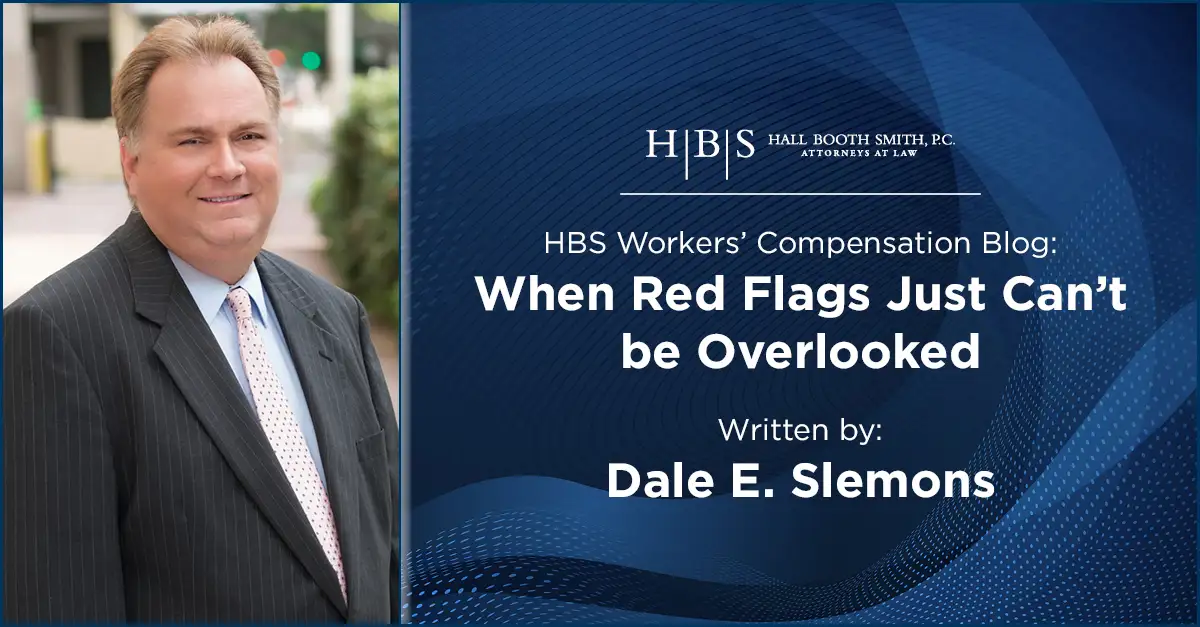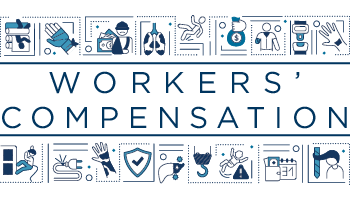
When Red Flags Just Can’t be Overlooked
Introduction
The purpose of the Georgia Workers Compensation Act is to provide immediate medical care and wage replacement or income benefits for injured workers. The Act was adopted in 1920 and is now codified as title 34 chapter 9 of the Official Code of Georgia Annotated.
The Act serves as a benefit to both employers and employees. Employers received the benefit of exclusive remedy from tort suits for negligence. Additionally, the Act provides that the Employee’s sole remedy against an Employer for a work injury is through the workers’ compensation system. Employees/Claimants, as they are referred to under the ACT, receive expedited medical, surgical, and hospital care, among other benefits.
While this trade-off isn’t perfect, it has worked for over a century and continues to provide excellent results for all parties.
Sounds perfect, right? Most of the time it is; however, while the majority of injured Employees are honest and good, hardworking people, occasionally there is the bad actor who makes it more difficult both for Employer/Insurers and for everyone else. These bad actors are often discovered through what is known to Adjusters and defense attorneys as “Red Flags.” These indicators are well known to Employers, Insurers, Third Party Administrators, and defense attorneys and are too numerous to mention in this post.
Once these “red flags” are present the question arises: What can I do to stop this type of action and deter others from attempting the gain unwarranted workers compensation benefits?
Identifying Red Flags
Oftentimes, red flags are discovered during the discovery phase of a workers’ compensation claim. Sometimes this is done through closely reviewing medical records, properly worded cross examination during a deposition, or surveillance. These and other tactics are used to compare and contrast findings and can lead to uncovering potential fraudulent behavior.
Examples of red flags might include obtaining indemnity benefits while working a subsequent job, sworn testimony about their medical conditions or capabilities, seeking assistance from a third party to further their receipt of benefits, and other seemingly dishonest behavior. I have even witnessed co-workers come forward and provide information that is detrimental to a claimant’s claims.
It is these types of disreputable actions that undermine the intent of the Georgia Workers’ Compensation Act and slow down the process for the injured worker who is entitled to benefits.
Enforcement Unit Provision
One of the most underutilized provisions of the Georgia Workers Compensation Act is the Enforcement Unit. This unit, established pursuant to O. C. G. A 34-9-24, is also often referred to as the Fraud and Compliance Unit.
The Enforcement Division ‘s primary goal has historically been utilized toward educating and assisting businesses, medical providers, and others who are involved in workers compensation claims to achieve a climate which will assure that legitimately injured workers received income benefits allowed under the act.
It also serves as an arm of the State Board of workers compensation to deal with potential fraud.
Any request for an action or proceeding with the fraud and compliance unit may be found by the State Board of Workers Compensation Enforcement Division to determine the assessment of civil penalties against any person or entity who has violated the provisions of title 34-9.
The mission of the enforcement division is to work with businesses operating in Georgia to assure compliance under the workers compensation laws to deter fraud and to enforce the rules and regulations of the workers compensation board. The Enforcement Division will investigate both Employers and Employees when it is believed that either party has committed Fraud.
Resources
To facilitate their mission, the enforcement division has created a fraud poster for employers to post.
It is recommended that this posting be place next to the posted panel physicians and Employee Bill of Rights in a prominent or conspicuous location at the employers place of business. Posting the poster may act as a deterrent to anyone with less than honorable intentions. The poster can be found on the Georgia State Board of Workers’ Compensation website.
Should you have any questions about what might constitute fraud under the Workers Compensation Act, please don’t hesitate to contact our Workers’ Compensation team.
Disclaimer
This material is provided for informational purposes only. It is not intended to constitute legal advice nor does it create a client-lawyer relationship between Hall Booth Smith, P.C. and any recipient. Recipients should consult with counsel before taking any actions based on the information contained within this material. This material may be considered attorney advertising in some jurisdictions. Prior results do not guarantee a similar outcome.
Blog Overview
About the Author

Atlanta Partner Dale E. Slemons represents employers, insurers, and third-party administrators in the defense of their workers’ compensation claims. His clients include construction companies, hospitals, carpet manufacturers, aviation industrial corporations, self-insured companies, and insurance companies.



Leave a comment
You must be logged in to post a comment.